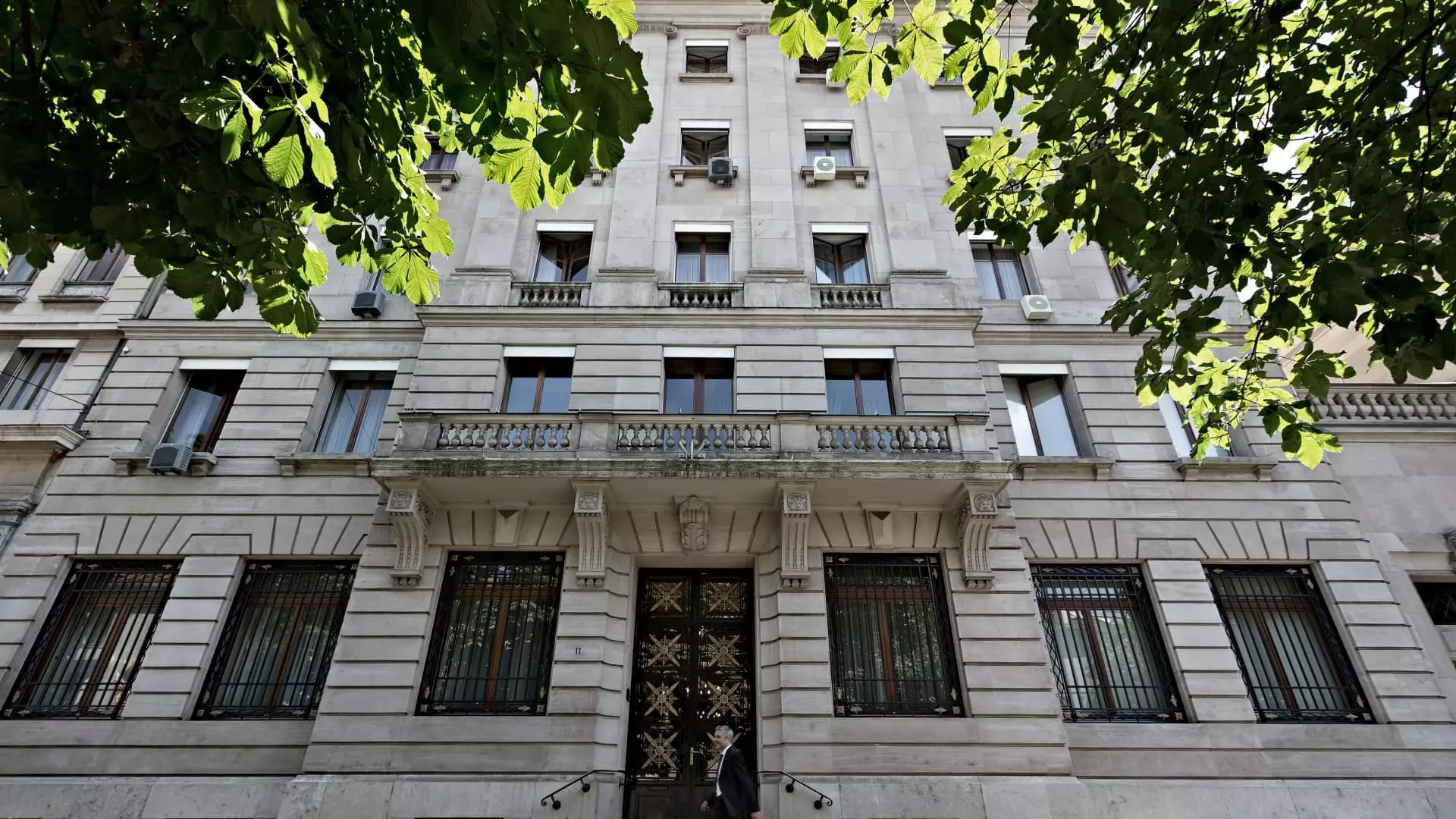Lombard Odier, an esteemed name among Switzerland’s private banks with a history stretching back to 1796, has recently found itself embroiled in serious legal challenges. Indicted for aggravated money laundering, the institution is under scrutiny for its alleged involvement in concealing the illicit proceeds of criminal activities connected to Gulnara Karimova, the daughter of former Uzbek president Islam Karimov. The complexities of this case not only highlight the challenges of regulatory compliance but also the broader implications for banking ethics in high-stakes environments.
The Office of the Attorney General of Switzerland (OAG) has brought forth the indictment, which names both Lombard Odier and a former employee for purportedly assisting in the laundering of funds linked to Karimova’s alleged criminal organization. Investigations suggest that these illegal funds may have been funneled through accounts at the Geneva-based bank over several years, particularly between 2005 and 2012. Karimova’s involvement in money laundering activities—a charge the authorities have pursued vigorously—casts a long shadow over Lombard Odier, forcing the bank to confront uncomfortable truths about its operational safeguards.
Lombard Odier’s Response and Stance
In a public statement, Lombard Odier has firmly denied the allegations laid against it, characterizing them as “unfounded and without merit.” The bank claims that it has taken proactive measures, including reporting any suspicions of wrongdoing to Swiss authorities, which is often viewed as a responsible approach in the financial services industry. This self-initiated transparency raises questions about internal controls and accountability within the institution, setting the stage for a rigorous defense and a potential negotiation of its reputation and future operational standards.
The indictment presents a critical case study in the often murky waters of banking ethics, especially concerning compliance with laws governing money laundering and financial transparency. Lombard Odier’s situation invites scrutiny of the systemic checks and balances that banks must enforce to prevent becoming unwitting conduits for criminal enterprise. As public trust in banking institutions continues to be tested, how Lombard Odier navigates this crisis will undoubtedly influence not only its reputation but may also alter the regulatory landscape for financial institutions operating in similar high-risk sectors.
As Lombard Odier prepares to defend itself against the accusations from the OAG, the outcome of this case may establish new precedents in the banking sector, particularly concerning the standards of compliance and due diligence in dealing with clients linked to potential criminal activity. The growing complications surrounding money laundering and the global push towards greater financial accountability are likely to loom large over this case. For Lombard Odier, the stakes couldn’t be higher as it seeks to reclaim its storied heritage while aligning with the modern demands of transparency and ethical banking. This situation will be closely watched by both legal experts and the financial community for its implications on future banking practices and regulatory expectations.

